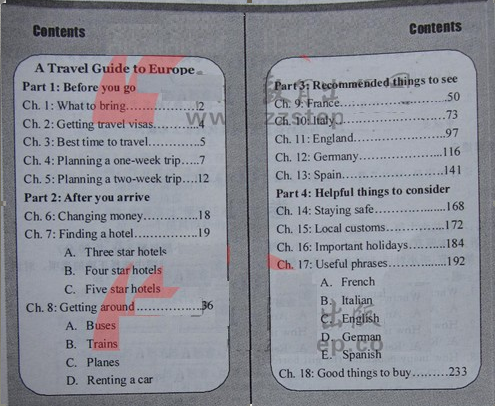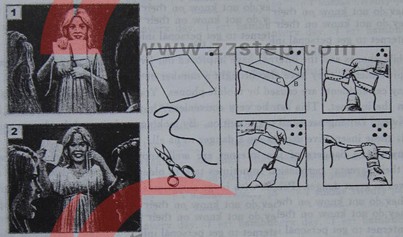-
When you finish high school or university, is learning done? The answer is “no”. In many countries, people continue learning all their lives. Why is lifelong learning important? How can it help you? Let’s look at one example of lifelong learning in Japan.
Why is lifelong learning important?
You go to school and learn. You take tests. But learning doesn’t only happen in school. And learning doesn’t stop when you graduate from high school or college. You are learning all the time. For example, learning can happen when you go to a museum. It can also happen when you get a job. You learn when you play a sport or when you take a trip. Learning is life! We never stop learning. Every day, you can improve yourself by learning something new.
Lifelong learning in Japan
In Japan, life learning is very important. People in Japan like to try new learning activities. Music calligraphy, flower arranging, and foreign languages are some of their favorite classes. The Japanese take classes to improve their skills and learn new things.
Conclusion
When we graduate from school, we can continue to learn. Make lifelong learning one of your goals!
1.Why is lifelong learning important?
A. It helps you improve yourself. B. It’s the best way to learn.
C. It’s fun and easy. D. It’s an important goal.
2. Some people in Japan take foreign language classes to ________.
A. get a job B. learn new things
C. get good grades D. finish college
3.Which of the following is TRUE according to the passage?
A. Learning only happens in school.
B. When we graduate from school, learning is done.
C. You can’t learn anything when you play a sport.
D. Music, calligraphy, flower arranging and foreign languages are popular classes in Japan.
4.What is the main idea of the reading?
A. Learning can be fun. B. We are always learning in school.
C. Finishing high school is important. D. People can learn all their lives.
难度: 中等查看答案及解析
-
My class will put on a short play in English at the end of the year. Yesterday our English teacher gave us copies of the play.
“Choose a character in the play whom you’d like to be, ”she told us. “This afternoon learn a few lines of this part for homework. Then tomorrow you can say those lines in front of the class. Ill decide who play each part.”
I wanted to have one of the bigger parts in the play, so I choose the part of the king. He has a lot of lines to say. I learned them by heart.
This morning in our English lesson we had to say our lines. I acted the part of the king. When I said my lines, I put a lot of expression into my acting. I thought I acted really well.
Everyone in the class read a part and then the teacher who would play each part.
Many of the students in my class couldn’t act at all. They couldn’t even read without making lots of mistakes. I was sure that I would get a big part in the play.
However, the teacher gave me the part of a soldier. He has only one line. It is, “Yes, sir!”
I was very disappointed. At the end of the lesson I went up to her and asked her why I had such a small part.
“You put too much expression in your acting,” she said. “Good acting is not big acting. It is acting the audience can believe in.”
I think I know what she means.
1. What did the boy want to do in the play?
A. To get a morning eating part
B. To organize the play
C. To get a large acting part. D. To work the lights.
2.How did the boy feel when the teacher told the class they would put on a play?
A. Bored. B. Sad. C. Excited. D. Unhappy.
3.Why didn’t the teacher give him the part of the kings?
A. He did not act correctly. B. He did not know the lines.
C. He was not handsome. D. He was too short.
4. What does the underlined word “expression” in the passage mean?
A. 表情 B.建议 C. 模仿 D. 服饰
难度: 中等查看答案及解析
-
Mobile phones and the internet have improved our live in many ways. However, along with improvements, they have also brought a number of worrying problems.
Many car accident are caused by mobile phones. You can use many new mobile phones to get on the internet. This can be very convenient, but some drivers get on the internet while driving. Driving needs all our attention. By looking at their mobile phones and not at the road, these insensitive Drivers are a danger to us all.
Many of the dangers of the internet are well known. Children who visit websites without their parents’ permission sometimes talk to older people they don’t know and put themselves in great danger. People with blogs sometimes post embarrassing photographs of people they don’t know on their websites without permission. There are also people who use the internet to get personal information that we do not want them to have.
Mobile Phone and Internet Safety Tips
◆ If you need to use a mobile phone with you drive use a “hands-free” phone.
◆ In difficult driving situations such as rain or snow, do not use your phone at all.
◆ Do not make very important phone calls while driving. They take your attention off the road.
◆ Tell your children not to talk with anyone they do not know on the internet.
◆ In an embarrassing situation, pay attention to people around you. People will be shy about taking your picture if they know you’re paying attention.
◆ Refuse to give out any information personal information on the internet.
1.Which of these dangers of mobile phones or the Internet is Not mentioned in the passage?
A. You can have a car accident.
B. Someone can post your photograph on the internet.
C. Someone can get your personal information
D. Someone you do not know can call you.
2. A “hands-free” mobile phone is probably a mobile phone that _____.
A. is free to use B. can be used without your hands
C. can be used with only one hand D. can be use only in ears
3. What advice is given in the passage to stop someone from taking an embarrassing picture of you?
A. Pay attention to the people around you.
B. Don’t give out your personal information.
C. Use a “hands-free” mobile phone.
D. Wear your camera phone on you belt.
4.Which is the best title of the passage?
A. Internet Problems
B. Mobile Phone and Internet Dangerous
C. The Development of Mobile Phone and Internet
D. The Advantages of Mobile Phone and Internet
难度: 中等查看答案及解析
-

1.How many parts does the book have?
A. 1 B. 4 C. 18 D. 233
2. If you’re interested in shopping you can read _____.
A. Chapter 3 B. Chapter 8 C. Chapter 16 D. Chapter 18
3. The book does NOT include _____.
A. help with European languages
B. information about visas
C. ideas about what to take on a trip
D. a section about traveling with pets
难度: 中等查看答案及解析
